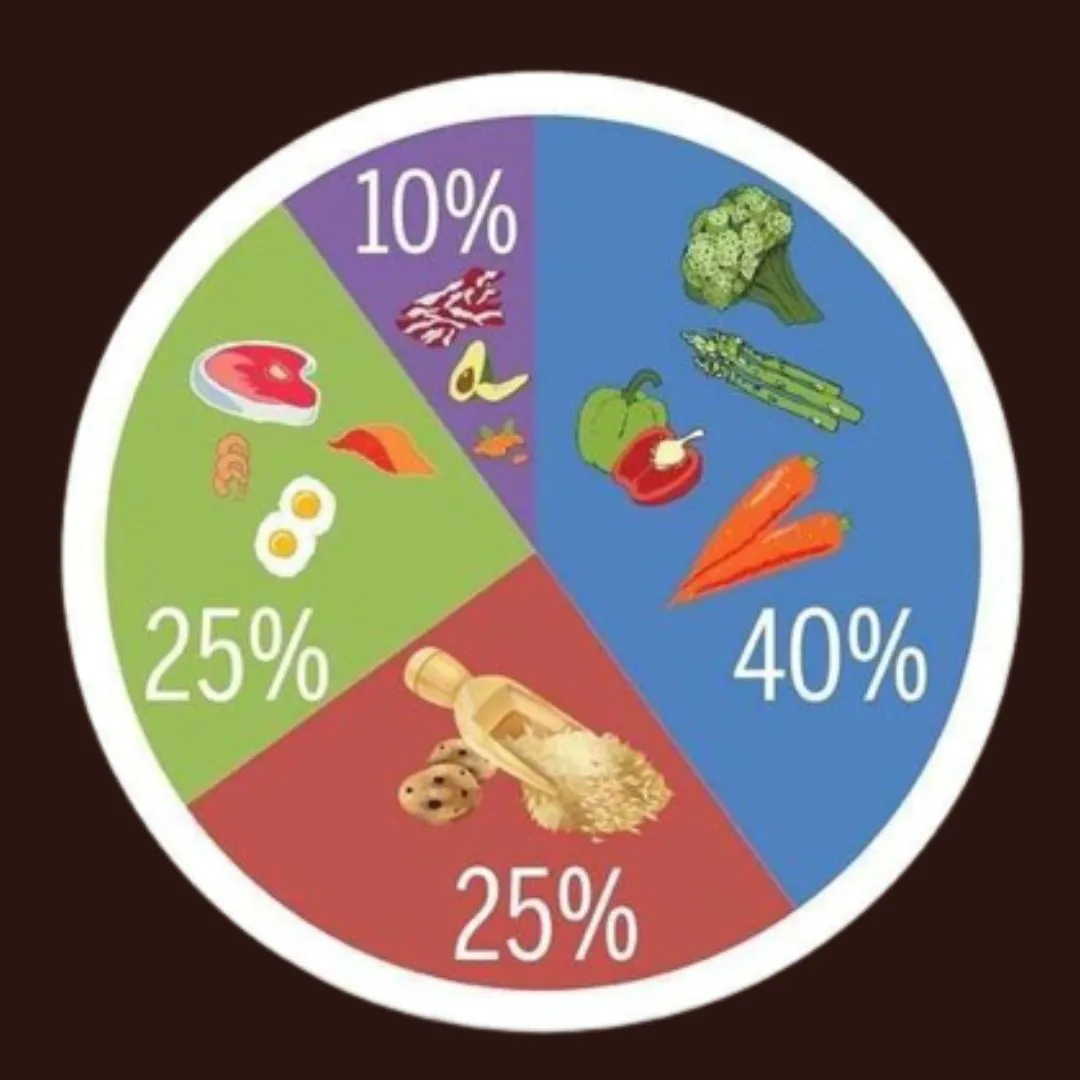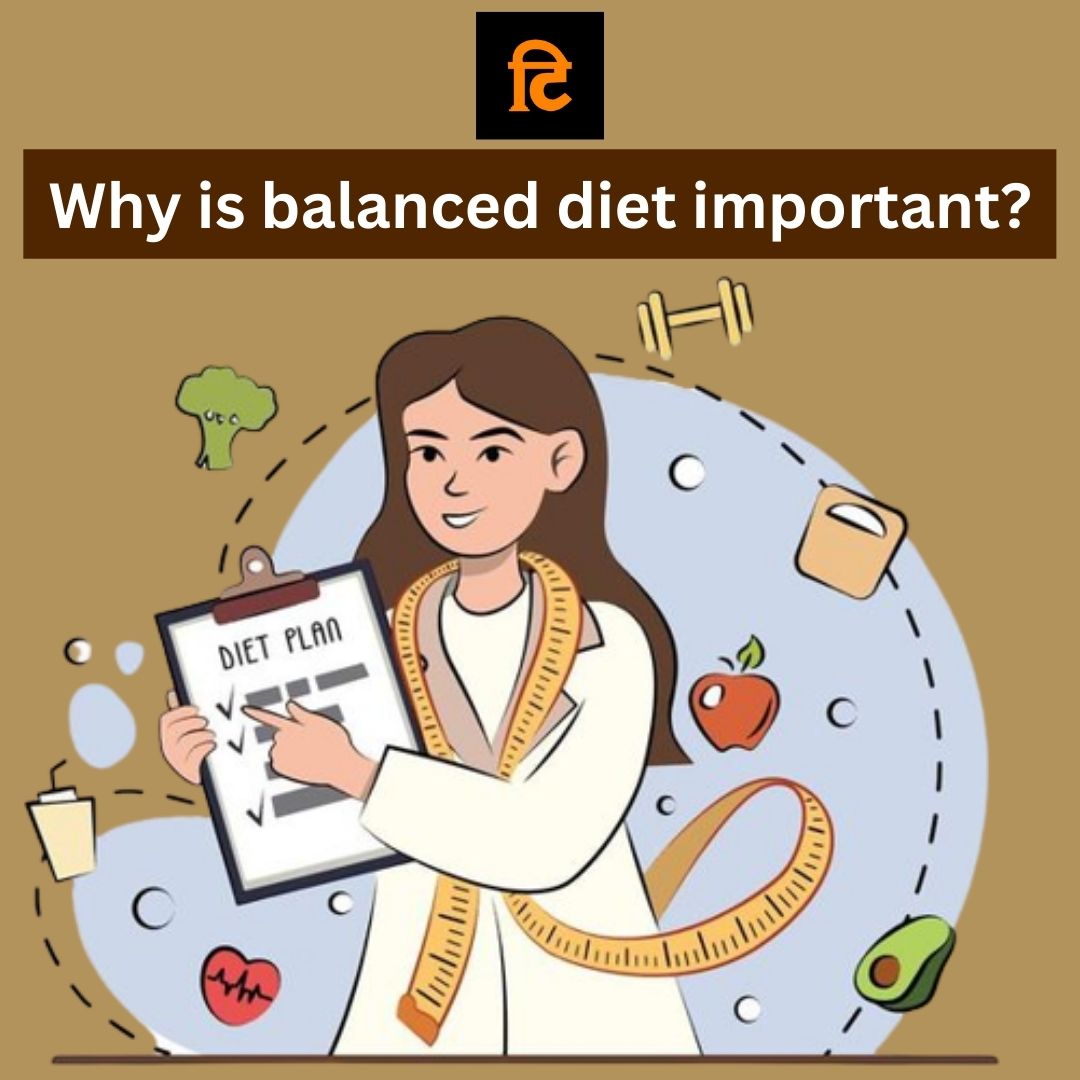Importance of a balanced diet
A healthy lifestyle is achieved by adhering to a balanced diet that provides all the essential nutrients needed by the body. Emphasizing the significance of a balanced diet cannot be overstated as it is instrumental in maintaining ideal body weight and reducing the likelihood of chronic diseases such as diabetes, cardiovascular ailments, and cancer. Having a well-structured meal plan is crucial in meeting these nutritional requirements.

What is a balanced diet ?
So, what precisely is a balanced diet? In basic terms, it refers to a diet that provides the necessary nutrients for the proper functioning of the body. The critical aspect of a healthy diet is consuming the appropriate number of calories. Your body acquires the correct nutrition when you consume a diverse range of calorie-rich foods, including fresh fruits and vegetables, whole grains, and proteins.

Calories
Calories are a measure of the energy content in food. Once consumed, calories are utilized by the body during activities such as walking, thinking, and breathing. On average, maintaining body weight may require an intake of approximately 2000 calories per day. However, an individual's caloric requirements may vary depending on factors such as gender, age, and physical activity level. Generally, men require more calories than women, and those who engage in more physical activity may need more calories than those who do not. Additionally, the quality of calories is just as essential as the quantity. Consuming empty calories, which offer little to no nutritional value, is not beneficial. Foods that are high in empty calories include sugar, butter, cookies, cakes, energy drinks, ice cream, and pizza.
Importance of a balanced diet
Consuming a healthy diet contributes significantly to feeling great, having more energy, improving health, and boosting mood. Good nutrition, physical activity, and maintaining a healthy body weight are crucial components of overall well-being.
Undoubtedly, the significance of healthy eating cannot be overemphasized. Failure to maintain a balanced diet for a healthy body increases the risk of illnesses, infections, and exhaustion. It is especially vital to highlight the importance of nutritious food for children since a lack of it may result in numerous growth and developmental issues. Heart disease, cancer, stroke, and diabetes are among the most common health problems that may arise from an imbalanced diet.
In addition to a proper diet, being physically active can manage many health issues and improve mental health by reducing stress, depression, and pain. Regular exercise helps prevent metabolic syndrome, stroke, high blood pressure, arthritis, and anxiety.

What falls under a balanced diet
A balanced diet comprises several healthy food groups, including:
- Vegetables, such as leafy greens, starchy vegetables, legumes (like beans and peas), red and orange vegetables, and others (like eggplant).
- Fruits, including whole fruits, fresh or frozen fruits (but not canned ones dipped in syrup).
- Grains, such as whole grains (e.g., quinoa, oats, brown rice, barley, and buckwheat) and refined grains.
- Protein sources, such as lean beef and pork, chicken, fish, beans, peas, and legumes.
- Dairy products, including low-fat milk, yogurt, cottage cheese, and soy milk.
To achieve a balanced diet, it's important to choose a wide variety of foods from each of the five food groups in recommended amounts. These food sources provide a similar amount of essential micro and macro-nutrients required by the body.
A balanced diet typically consists of 50-60% carbohydrates, 12-20% protein, and 30% fat. Proper nutrition is necessary for all organs and tissues to work effectively, providing the right amount of nutrients and calories to maintain a healthy weight. Good nutrition, physical exercise, and a healthy body weight are essential for overall health and well-being.
A proper meal pattern involves a complete combination of food ingredients, food items, and quantities required for breakfast, lunch, snack, and dinner for each specific age group. Adequate protein is necessary for muscle mass and blood cells, which bring oxygen and nutrients to the muscles.
Quality carbohydrates, lean protein, essential fats, and fluids accompanied by regular exercise are necessary for maintaining physical health and well-being. Adopting healthier lifestyles can also improve sleep and mood, while physical activity can improve brain-related function and outcomes.
Small changes in your diet can go a long way in achieving an ideal body weight. Consuming the right kind of carbohydrates is crucial. Many people rely on simple carbs found in sweets and processed foods, but fruits and vegetables are rich sources of natural fiber, vitamins, minerals, and other compounds needed by the body. Unsaturated fats may help reduce inflammation and provide calories.

Importance of a healthy lifestyle
Healthy eating habits are just as important as maintaining a balanced diet. Here are some practices that you can follow:
- Opt for smaller portions – Use smaller bowls or plates to make it appear as if you have a larger portion, tricking your brain into feeling satisfied with less food.
- Take your time – Eating slowly and deliberately can help you feel more satisfied with your meal, rather than rushing through it and feeling like you need more food.
- Limit unhealthy snacks – Instead of indulging in unhealthy snacks, try to replace them with bite-sized healthy options.
- Avoid emotional eating – Turning to food to cope with stress, sadness, or anxiety can lead to harmful binge eating. Instead, try finding healthier alternatives to deal with negative emotions.





इस पोस्ट को शेयर करें:
Comments (0)